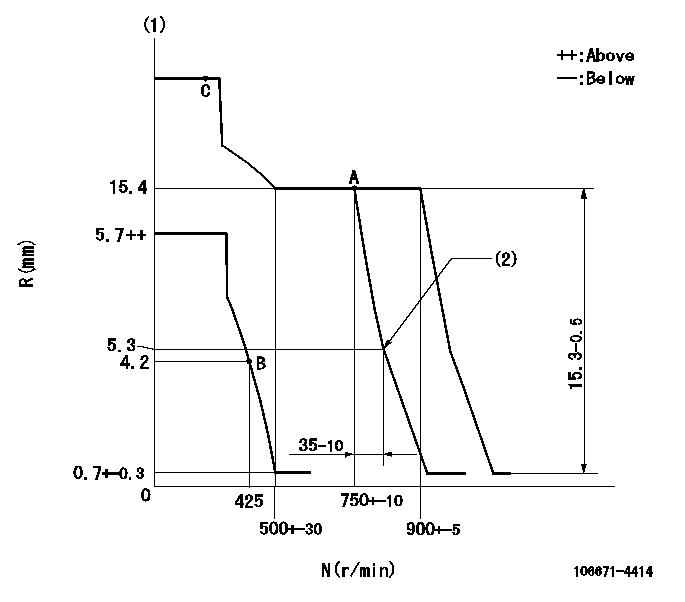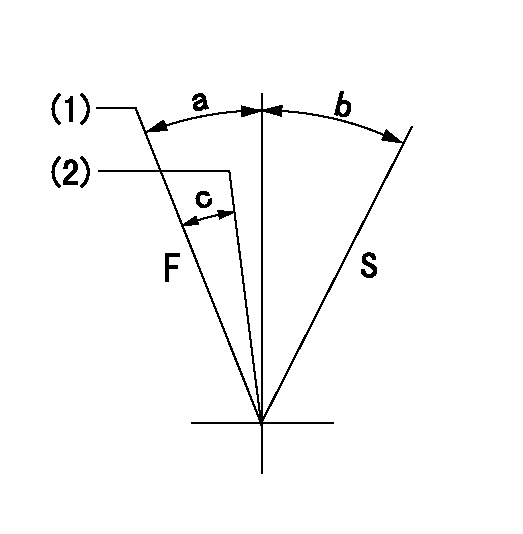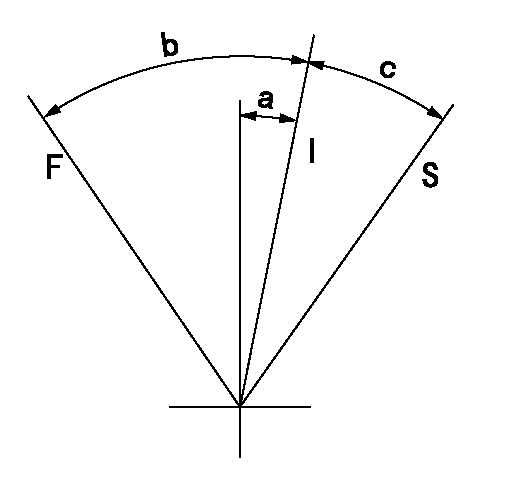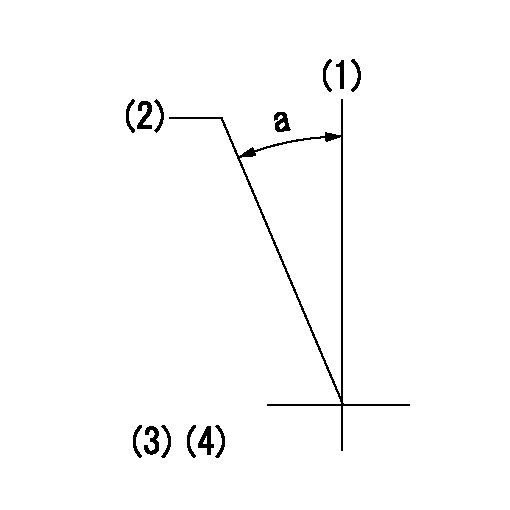Information injection-pump assembly
ZEXEL
106671-4414
1066714414
MITSUBISHI-HEAV
3256520382
3256520382

Rating:
Service parts 106671-4414 INJECTION-PUMP ASSEMBLY:
1.
_
7.
COUPLING PLATE
8.
_
9.
_
11.
Nozzle and Holder
32561-69010
12.
Open Pre:MPa(Kqf/cm2)
21.6{220}
15.
NOZZLE SET
Include in #1:
106671-4414
as INJECTION-PUMP ASSEMBLY
Cross reference number
ZEXEL
106671-4414
1066714414
MITSUBISHI-HEAV
3256520382
3256520382
Zexel num
Bosch num
Firm num
Name
Calibration Data:
Adjustment conditions
Test oil
1404 Test oil ISO4113 or {SAEJ967d}
1404 Test oil ISO4113 or {SAEJ967d}
Test oil temperature
degC
40
40
45
Nozzle and nozzle holder
105780-8130
Bosch type code
EFEP215A
Nozzle
105780-0050
Bosch type code
DN6TD119NP1T
Nozzle holder
105780-2090
Bosch type code
EFEP215
Opening pressure
MPa
17.2
Opening pressure
kgf/cm2
175
Injection pipe
Outer diameter - inner diameter - length (mm) mm 8-3-600
Outer diameter - inner diameter - length (mm) mm 8-3-600
Overflow valve
131424-1520
Overflow valve opening pressure
kPa
157
123
191
Overflow valve opening pressure
kgf/cm2
1.6
1.25
1.95
Tester oil delivery pressure
kPa
157
157
157
Tester oil delivery pressure
kgf/cm2
1.6
1.6
1.6
Direction of rotation (viewed from drive side)
Left L
Left L
Injection timing adjustment
Direction of rotation (viewed from drive side)
Left L
Left L
Injection order
1-5-3-6-
2-4
Pre-stroke
mm
3.9
3.85
3.95
Rack position
Point A R=A
Point A R=A
Beginning of injection position
Governor side NO.1
Governor side NO.1
Difference between angles 1
Cal 1-5 deg. 60 59.5 60.5
Cal 1-5 deg. 60 59.5 60.5
Difference between angles 2
Cal 1-3 deg. 120 119.5 120.5
Cal 1-3 deg. 120 119.5 120.5
Difference between angles 3
Cal 1-6 deg. 180 179.5 180.5
Cal 1-6 deg. 180 179.5 180.5
Difference between angles 4
Cyl.1-2 deg. 240 239.5 240.5
Cyl.1-2 deg. 240 239.5 240.5
Difference between angles 5
Cal 1-4 deg. 300 299.5 300.5
Cal 1-4 deg. 300 299.5 300.5
Injection quantity adjustment
Adjusting point
A
Rack position
15.4
Pump speed
r/min
750
750
750
Average injection quantity
mm3/st.
433
424
442
Max. variation between cylinders
%
0
-3
3
Basic
*
Fixing the lever
*
Injection quantity adjustment_02
Adjusting point
B
Rack position
4.2+-0.5
Pump speed
r/min
425
425
425
Average injection quantity
mm3/st.
23.5
20.5
26.5
Max. variation between cylinders
%
0
-10
10
Fixing the rack
*
Timer adjustment
Pump speed
r/min
450--
Advance angle
deg.
0
0
0
Remarks
Start
Start
Timer adjustment_02
Pump speed
r/min
400
Advance angle
deg.
0.5
Timer adjustment_03
Pump speed
r/min
700
Advance angle
deg.
1.4
0.9
1.9
Timer adjustment_04
Pump speed
r/min
900
Advance angle
deg.
3
2.5
3.5
Timer adjustment_05
Pump speed
r/min
-
Advance angle
deg.
4
3.5
4.5
Remarks
Measure the actual speed, stop
Measure the actual speed, stop
Test data Ex:
Governor adjustment

N:Pump speed
R:Rack position (mm)
(1)Target notch: K
(2)Idle sub spring setting: L1.
----------
K=5 L1=5.3-0.5mm
----------
----------
K=5 L1=5.3-0.5mm
----------
Speed control lever angle

F:Full speed
S:Stop
(1)Set the pump speed at aa. ( At delivery )
(2)Pump speed = bb
----------
aa=900r/min bb=750r/min
----------
a=(13deg)+-5deg b=32deg+-3deg c=(11deg)+-5deg
----------
aa=900r/min bb=750r/min
----------
a=(13deg)+-5deg b=32deg+-3deg c=(11deg)+-5deg
0000000901

F:Full load
I:Idle
S:Stop
----------
----------
a=9deg+-5deg b=(29deg)+-5deg c=35deg+-5deg
----------
----------
a=9deg+-5deg b=(29deg)+-5deg c=35deg+-5deg
Timing setting

(1)Pump vertical direction
(2)Coupling's key groove position at No 1 cylinder's beginning of injection
(3)-
(4)-
----------
----------
a=(20deg)
----------
----------
a=(20deg)
Information:
Adjust - to conform and correspond to specifications. Check - to observe for satisfactory conditions, accuracy, safety or performance. Exchange - to trade a worn or failing component for a remanufactured or rebuilt component. Inspect - to examine closely, in critical appraisal, while testing or evaluating components or systems. Inspect/Rebuilt or Exchange - to examine closely; then making the decision on repair option (Rebuild or Exchange). Lubricate - to apply a lubricant (oil, grease, etc.) as specified for reducing friction, heat and wear between solid surfaces. Protective Devices - indicators such as GSC display and alarms, lights, emergency shutoffs, etc., that alert an operator that a potential problem may exist. Failure to respond to these indicators in a timely manner could result in serious engine damage. Rebuild - to repair a worn or failing component with new parts, components and/or remanufactured components. Replace - to install something new, remanufactured or rebuilt in place of an existing worn or failing component. Service Hours (Electrical) - records the time (clock hours) the engine is actually running but does not reflect variations in speed, load, etc. The Maintenance Schedules are developed for calendar time, clock hours or fuel consumption. Hours are expressed in clock hours, not service meter units (unless the service meter is a clock hour device). Hours of operation include only the time that the engine is running. An electric clock device should be connected so it is OFF when the engine is not running. Caterpillar recommends that fuel consumption be used as the preferred method of establishing intervals rather than time or clock hours. Maintenance Intervals
The Maintenance Schedule requires all previous interval maintenance items to be performed first. For instance, if the Every 250 Hour maintenance is being done, then the Daily and Every 250 Hour maintenance items must be completed BEFORE performing the Every 1000 Hour maintenance.Engines may be equipped with various optional components and the Schedule may recommend maintenance for items not installed on your engine. Simply disregard reference to any extraneous items. If unsure of any item, consult your Caterpillar dealer.Overhaul Interval
One interval for some engines is labeled TOP END because it involves removal, inspection, and rework of the cylinder head components. This interval is dependent on load-sensitive items/total amount of fuel consumed. The last interval in each chart lists the components inspected, rebuilt, exchanged or replaced at overhaul. OVERHAUL is defined as the interval at which the major wear items in the engine should be replaced. The intervals represent maintenance of a non-failed engine. In other words, the engine is being rebuilt with certain new parts replacing worn parts such as piston rings, engine rod and main bearings, valves and valve seats., etc. Incidental to the replacement of these relatively few parts is the complete inspection of all other parts that are visible during the overhaul
The Maintenance Schedule requires all previous interval maintenance items to be performed first. For instance, if the Every 250 Hour maintenance is being done, then the Daily and Every 250 Hour maintenance items must be completed BEFORE performing the Every 1000 Hour maintenance.Engines may be equipped with various optional components and the Schedule may recommend maintenance for items not installed on your engine. Simply disregard reference to any extraneous items. If unsure of any item, consult your Caterpillar dealer.Overhaul Interval
One interval for some engines is labeled TOP END because it involves removal, inspection, and rework of the cylinder head components. This interval is dependent on load-sensitive items/total amount of fuel consumed. The last interval in each chart lists the components inspected, rebuilt, exchanged or replaced at overhaul. OVERHAUL is defined as the interval at which the major wear items in the engine should be replaced. The intervals represent maintenance of a non-failed engine. In other words, the engine is being rebuilt with certain new parts replacing worn parts such as piston rings, engine rod and main bearings, valves and valve seats., etc. Incidental to the replacement of these relatively few parts is the complete inspection of all other parts that are visible during the overhaul